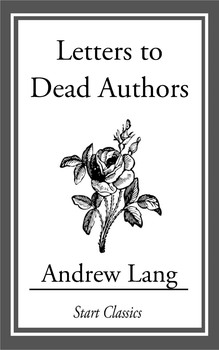LETTER–To Herodotus
byLetter to Herodotus opens not with reverence but with a lightly sardonic tone, as the author sets out on a pilgrimage of sorts to trace the truth behind your renowned tales. This journey leads to the island known as Britain, where ancient rivers such as the Thames still flow, though now flanked by a sprawling metropolis more consumed with modern machinery than memories of antiquity. There is little curiosity among its people about the classical past; Herodotus, if known at all, is regarded more as a curiosity than a credible guide. Even the aged stones of the city, darkened by soot and clouded skies, appear more forgetful than remembering. As trams buzz and steam rises from ironworks, the idea of Croesus or the oracles of Delphi seems like fiction in reverse—too old to believe, too curious to dismiss. This contrast between past grandeur and modern disinterest becomes the first quiet satire of your enduring legacy.
Along a winding road thick with fog and duckweed-lined canals, the author is pointed toward what locals cryptically call the City of the Priests. It is a place supposedly reserved for learning, though it sleeps half the year under the guise of tradition and athletic humility. The journey itself becomes an amusing observation of British customs—eating kippers for breakfast, naming every bridge with alarming pride, and maintaining a fondness for rowing in rain that would offend even the Nile. Upon arrival, the halls are quiet, their students scattered in retreat from academic rigor, apparently in a sanctioned holiday termed “The Vac.” Through dim corridors and libraries that smell more of damp vellum than wisdom, the author finally encounters a priestly scholar hailed for his breadth of knowledge. This man, though wrapped in academic robes and authority, quickly declares Herodotus not a historian but “the Father of Lies,” with the casual cruelty of someone quoting a popular refrain rather than a reasoned critique.
The priest, eyes twinkling with both condescension and confidence, claims your tale of Solon and Croesus was pure invention, crafted to dramatize a moral lesson rather than document an encounter. According to him, such figures never met—geography and chronology allegedly collude against your narrative. Xerxes’ dreams, he adds, are too conveniently prophetic, as if written with hindsight rather than observed in the fog of war. In accusing you of plagiarism, the priest seems to miss your role not as an eyewitness, but as a weaver of human voices and collective memory. Your sources, he argues, were gathered with more enthusiasm than precision. Yet in his eagerness to discredit, he reveals an ironic affection; for who but a true admirer bothers to debunk in such detail?
This meeting raises a larger question about the nature of truth in history. If your stories were occasionally embroidered, they were done so to reveal character, motive, and the deeper essence of cultural identity—not to deceive but to illuminate. Your world was stitched together from rumor, tale, and the word of merchants and priests alike, but what emerged was a living document that has outlasted empires. In comparing this with the sterile record-keeping of modern bureaucrats, one wonders who really preserves the past: the dramatist who brings it to life or the clerk who files it away? Though inaccuracies may pepper your work, your intention was always faithful to the human story. A tale exaggerated is not always a lie—it may be the truth rendered vivid enough to be remembered.
In returning to London, the author passes through villages where history has been replaced by convenience stores and commemorations by consumerism. Children no longer study Herodotus but scroll endless feeds filled with fleeting images. Even those who claim to teach history rarely read your pages firsthand; instead, they absorb summaries, trust footnotes, and reduce the sweep of Persian wars to a few exam questions. Yet something of your method remains alive. Oral stories still carry weight in local pubs, and the human impulse to listen, to repeat, to wonder—this persists. Though the names have changed, and the accents grown unfamiliar, the core of what you captured still pulses beneath the surface.
It would be easy, in this age, to dismiss your work as archaic, your detail as distraction, and your motives as poetic rather than journalistic. Yet in stripping away the elegance of your prose and the mythic breath of your sources, modern historians have lost something essential. They have forgotten that history is not merely a collection of dates and tomb inscriptions—it is the breath of memory passed from one generation to another, shaped not just by fact but by belief. You understood this, and your pages speak to that eternal conversation between what was and what we hope might have been. In honoring that, your role becomes not the father of lies, but the grandfather of memory—a position both fragile and noble.
So in closing, if the Thames now wears a smog-gray coat and the priests of Oxford forget to pray to Clio, know that your legacy, though misunderstood, remains far from buried. A few readers still turn your pages with awe, tracing the edges of your maps with hopeful fingers. They find there not just geography or politics, but the raw ache of empires lost, the glitter of stolen treasure, and the laughter of strange customs half a world away. And in those echoes, Herodotus, your voice still travels.

